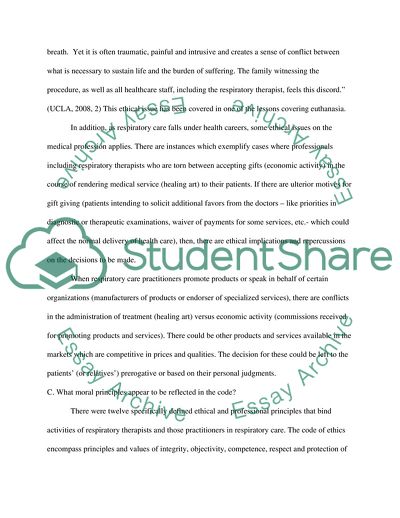Cite this document
(The Code of Ethics of the American Association for Respiratory Care Assignment Example | Topics and Well Written Essays - 1500 words - 1, n.d.)
The Code of Ethics of the American Association for Respiratory Care Assignment Example | Topics and Well Written Essays - 1500 words - 1. https://studentshare.org/health-sciences-medicine/1734685-code-of-ethics
The Code of Ethics of the American Association for Respiratory Care Assignment Example | Topics and Well Written Essays - 1500 words - 1. https://studentshare.org/health-sciences-medicine/1734685-code-of-ethics
(The Code of Ethics of the American Association for Respiratory Care Assignment Example | Topics and Well Written Essays - 1500 Words - 1)
The Code of Ethics of the American Association for Respiratory Care Assignment Example | Topics and Well Written Essays - 1500 Words - 1. https://studentshare.org/health-sciences-medicine/1734685-code-of-ethics.
The Code of Ethics of the American Association for Respiratory Care Assignment Example | Topics and Well Written Essays - 1500 Words - 1. https://studentshare.org/health-sciences-medicine/1734685-code-of-ethics.
“The Code of Ethics of the American Association for Respiratory Care Assignment Example | Topics and Well Written Essays - 1500 Words - 1”. https://studentshare.org/health-sciences-medicine/1734685-code-of-ethics.


